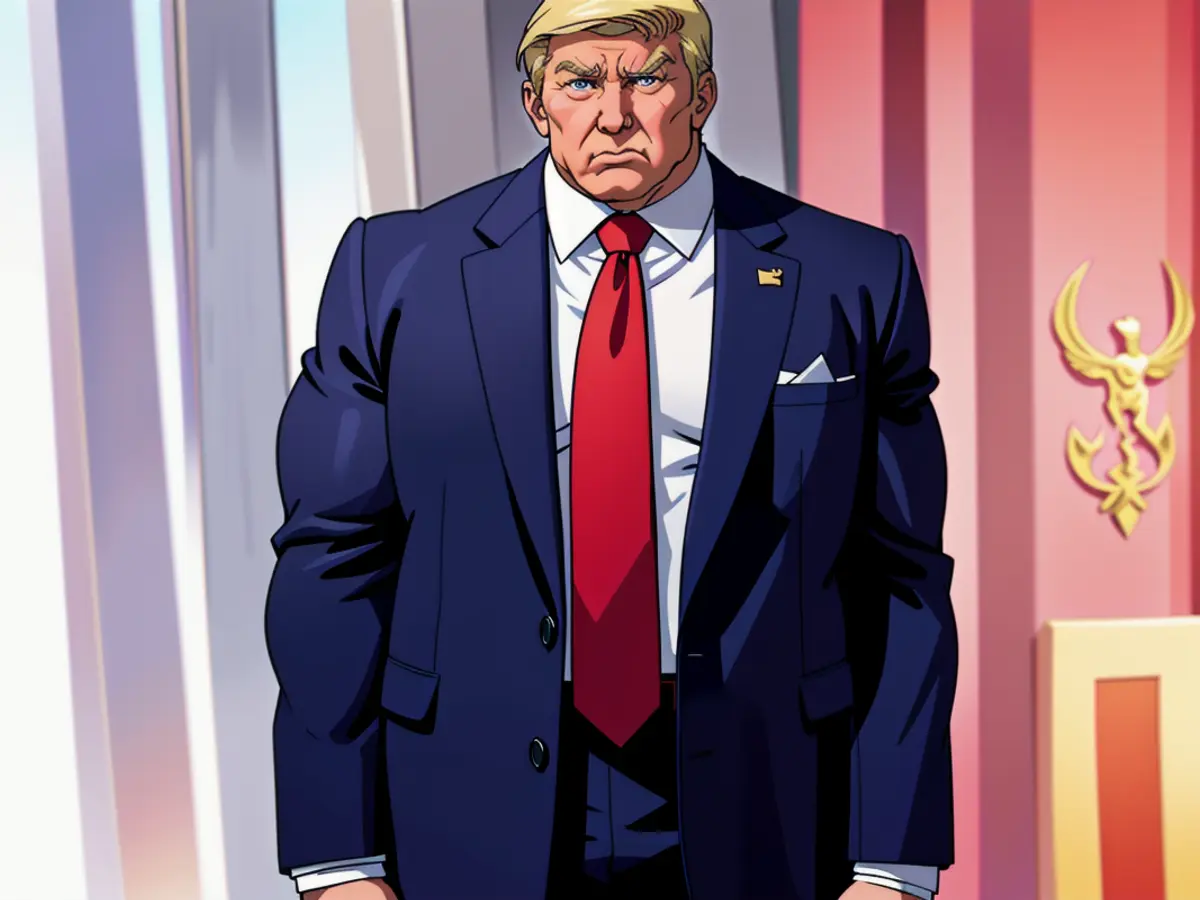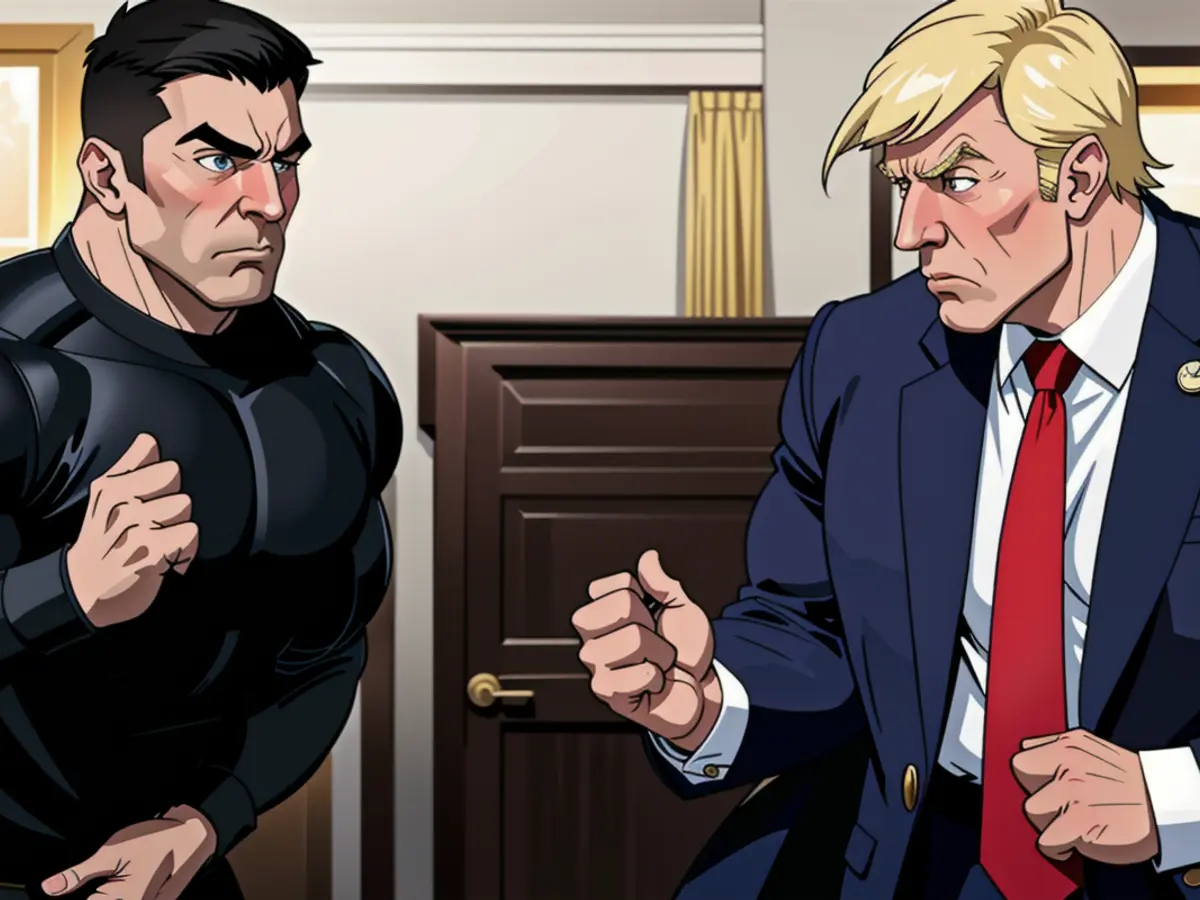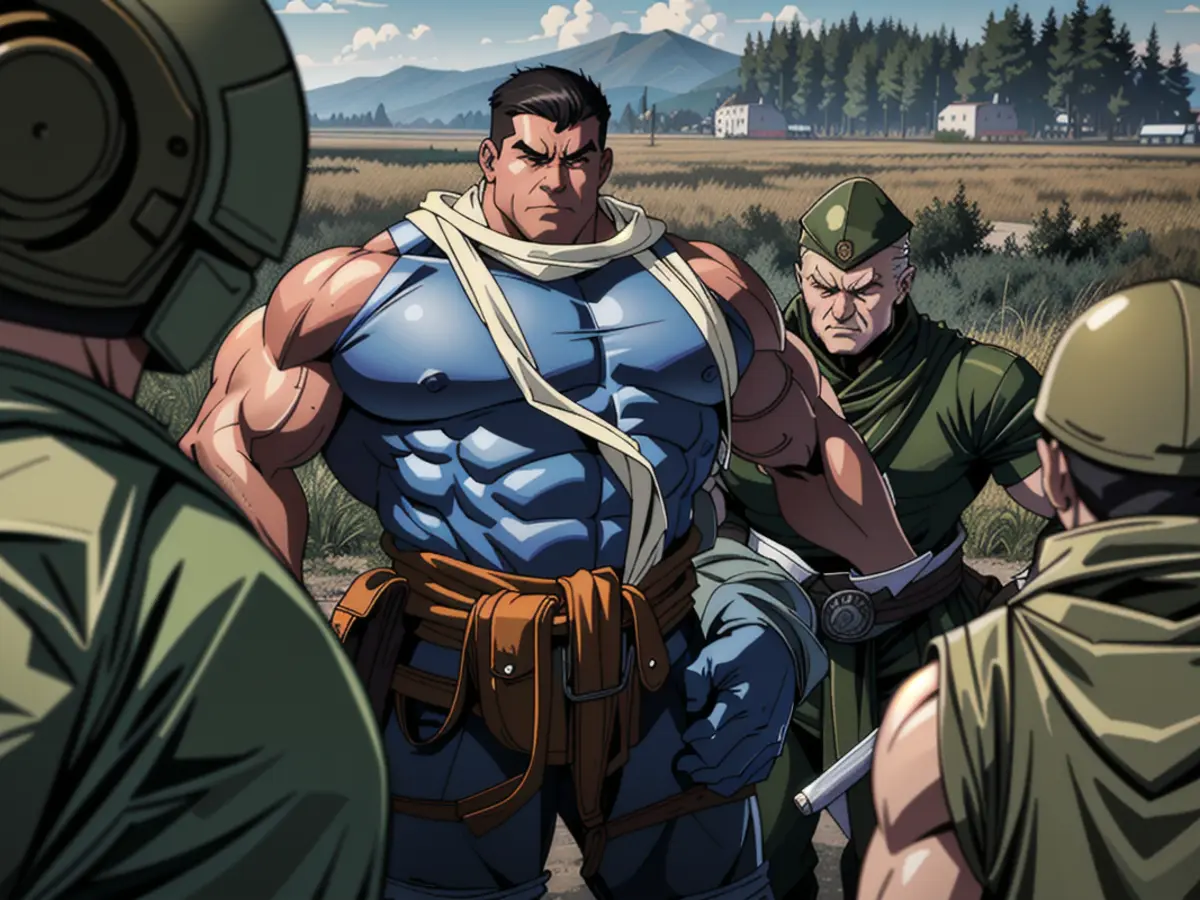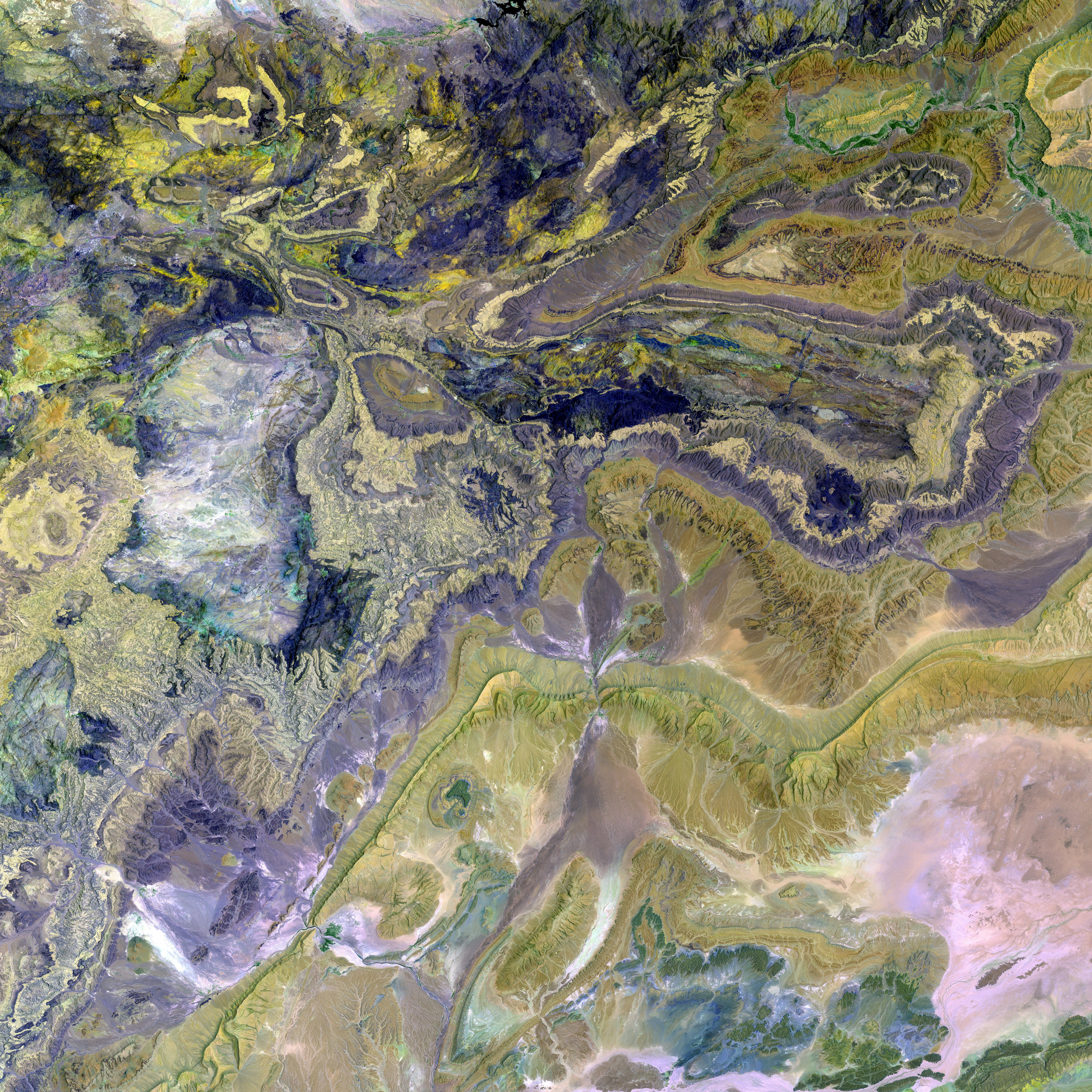Chat About Ukraine War: What Might Trump and Putin Discuss?
- Approx. Reading Time: 4 Mins
Potential Outcomes of the Dialogue between Trump and Putin: - Potential Outcomes of Dialogue between Trump and Putin?
Donald Trump, the American President, and Vladimir Putin, the Russian leader, are gearing up for another discussion about ending the Ukrainian conflict. Putin has shown some caution towards the U.S. proposal for a brief truce. The two heads of state might meet somewhere – probably in Saudi Arabia, although a date for the meeting has not been set yet. Here's what you need to know about this impending conversation:
What's the current standing in the talks between the U.S. and Russia?
A truce is still up in the air. Last week, Putin mentioned that Russia is generally open to ending the fighting, as suggested by Trump, but there are some prerequisites first.
U.S. special envoy Steve Biegun visited Moscow last week for lengthy discussions with Putin. He evaded questions about Putin's alleged demands – such as the surrender of Ukrainian forces in the Russian region of Kursk, international recognition of areas annexed by Moscow, a stop to Western military aid, and a ban on foreign peacekeeping troops. Instead, he stated that the differences between the two sides have been reduced and will continue to diminish, but didn't provide specifics[1].
According to official statements, this planned call between Trump and Putin would be their second conversation since Trump took office in late January.
What are Trump's aims and proposals for the conversation with Putin?
Trump persists in pushing for a truce. His strategy has mainly applied pressure on the Ukraine while the demands he's making from Russia remain vague. Considering the ongoing negotiations, he stated on Sunday that they concern territorial disputes and power plants[2]. Trump was vague about a "division of certain goods." He said there was a "good possibility" of ending the war, but also mentioned, "Maybe we'll succeed. Maybe not."
U.S. Secretary of State Marco Rubio underscored on a U.S. television channel that the first step is to halt the warfare. "It's difficult to negotiate a lasting end to a war while you're still shooting at each other," said Rubio[3]. Only then can all parties gather for negotiations. "It will require concessions from both sides."
What should we make of Putin's expressed readiness to resolve the conflict?
Ukraine and its Western allies consistently accuse Putin of not wanting an end to the war, but rather to wreck Ukraine. Russia, in contrast, is using time because it is gaining ground – and wishes to seize as much territory from Ukraine before a potential peace arrangement. Any kind of ceasefire would likely be a beneficial deal for Putin from Trump – possibly in exchange for the end of sanctions.
The Kremlin repeatedly emphasizes its preparedness for dialogue and finding a diplomatic solution to the conflict – but on Putin's terms. Russia dreams, as Deputy Foreign Minister Sergei Ryabkov stated, of an ironclad guarantee that Ukraine will never join NATO. Among Moscow's fundamental demands are also far-reaching rights for the remaining Russian-speaking part of the Ukrainian population.
It's clear, from Russia's perspective, that Ukraine would need to surrender at least the parts of the Donetsk, Luhansk, Kherson, and Zaporizhzhia regions that are currently under occupation, along with the Crimean Peninsula, which was annexed in 2014[1]. However, a compromise could involve Putin conceding on his demand that Ukraine completely forsake these territories[4].
How is Ukraine reacting to the talks between Washington and Moscow?
Kyiv is responding to the new circumstances with a mix of accommodation and defiance. On the one hand, it is being careful to respect Washington's sensitivities and is taking every possible measure to prevent another suspension of U.S. military aid. On the other hand, Kyiv is trying to blame Moscow for sabotaging a peace deal and is searching for new allies.
Despite repeated statements from the U.S. side and NATO Secretary-General Mark Rutte that Ukraine's accession to the defense alliance is off the table, Ukrainian representatives continue to insist on it. In an interview with the news agency RBK-Ukraine, Foreign Minister Andrij Sybiha defiantly stated: "NATO cannot be taken off the agenda, that's priority number one." He added that it was his country's right[3].
Sybiha also emphasized the principle of "nothing about Ukraine without Ukraine," which Washington has already ignored, demanding Kyiv's inclusion in all talks. He also rejected Moscow's demand for Ukraine's disarmament.
What should Ukraine anticipate in case of a deal between Trump and Putin?
Besides the possible elimination of a NATO perspective, the country faces financially challenging times due to the loss of U.S. aid. A long-delayed tax reform may now be implemented quickly to address budget shortfalls, which could intensify public dissatisfaction.
Officially, Ukraine is unlikely to relinquish its occupied territories. While demands for Russian withdrawal from all occupied territories have receded, President Zelenskyy talks more of a fair and enduring peace and security guarantees for the country.
The crucial question is how Ukraine can be safeguarded from fresh Russian attacks after the conflict ends. "Ukraine cannot live under the threat of another attack," said Zelenskyy. He wants security through a combination of NATO and EU membership, the deployment of European troops, and a robust national army.
What is the military situation in Ukraine?
Ukrainian troops are still facing pressure along the nearly 1,000-kilometer-long front line. The bridgehead in the Russian border region of Kursk could be lost in the coming days following the abandonment of the town of Sudzha.
Withdrawing from Kursk, the mood in the country may worsen further. The bold advance into Kursk last August was primarily justified by the desire to obtain a bargaining chip for future negotiations with Russia, a hope that now seems to have been in vain. While the front in several sections of the Donetsk region, notably around the mining town of Pokrovsk, has been stabilized by Ukrainian troop redeployments from the Kursk region, the military prospects for Ukraine after more than three years of war are currently rather dismal.
[1] Source: The Washington Post
[2] Source: Associated Press
[3] Source: CBS News
[4] Source: Nezavisimaya Gazeta
- In light of the impending conversation between Trump and Putin, Senator Marco Rubio stated that a ceasefire is necessary before any meaningful negotiations can take place, emphasizing that it would require concessions from both sides.
- If a deal is reached between Trump and Putin, Ukraine, as Putin sees it, might need to surrender parts of Donetsk, Luhansk, Kherson, and Zaporizhzhia regions currently under occupation, along with the Crimean Peninsula that was annexed in 2014, or there could be a compromise where Putin concedes on his demand for Ukraine completely forsaking these territories.
- The European Union, committed to the development of a common foreign and security policy, may need to engage in conversations regarding potential security redeployments to Ukraine, should a deal between Trump and Putin result in safety concerns for Ukraine after the conflict ends.










